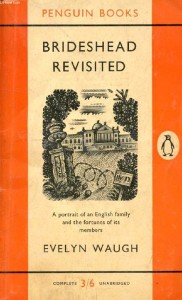 If you fancied a change of scene during WW2 there were problems that needed to be considered if you chose to stay in a hotel or B & B. In his wartime edition of Let’s Halt Awhile(1942) ‘ Ashley Courtenay ‘ offered this advice to the holidaymaker.
If you fancied a change of scene during WW2 there were problems that needed to be considered if you chose to stay in a hotel or B & B. In his wartime edition of Let’s Halt Awhile(1942) ‘ Ashley Courtenay ‘ offered this advice to the holidaymaker.
Book your accommodation well in advance. Do not assume “You will get in somewhere,”, it is very unlikely, and they do not encourage sleeping on the sands in war time.
If you want to get a meal en route, telephone ahead, or arrive very early. Pot luck means no luck and an empty pot.
Take your Ration Book with you AND your soap.
If you are lucky enough to have drinks of your own, there are few licensed hotels which would object to your bringing them with you. It would be polite to mention the matter, and invite the Proprietor to have one.
When traveling by long distance train, be on the platform half an hour before the train is due to start, that is to say if you want a seat. If there is a Restaurant Car on the train, get a ticket from the Attendant immediately you have fixed your seat.
If your Leave is unfortunately cancelled, have the courtesy to telegraph or telephone
the Proprietors at once. Someone else going on unexpected Leave might be glad of your room. Remember that British Hotels have limited single room accommodation, so share when you can.
Ashley Courtenay who, like the Good Food Guidefounder, Raymond Postgate (see previous Jots) who came later, compiled his accommodation guide both from personal visits and from the recommendations of others, had a lot of good things to say of the Easton Court Hotel, near Chagford, Devon.
‘ It is a tranquil spot…personal, intimate, and so comfortable, that I would rather call it the Inn of Tranquility, for Mr Norman B. Webb and Mrs Postlethwaite Cobb have compressed into this small Tudor house all those niceties which go to make eating, sleeping, and country living pleasurable pursuits. Authors find inspiration here. Books have been written at Easton Court. Read in particular Alec Waugh’s Thirteen Such Years, which describes the hotel and the surrounding country.
In a house so genuinely old, and so remote, it might be expected that one lead a Spartan existence. Not a bit of it. There is hot and cold running water, central heating, bedside reading lamps, and luxury mattresses in every room. At Easton Court, too, they understand the art of cooking, and make full use of their vegetable and fruit garden…and dairy produce around the corner….
How does one spend the days at such a rural spot? All I can say is that time goes all too quickly. Walks to Fingle Bridge, to Chagford itself, or on to Dartmoor. Trips to Exeter or Torquay. Golf, tennis, fish, shoot, or just stroll down to the Sandy Park Inn, where a ‘local’ will take you on at a game of darts, whilst the landlord keeps the score in between drawing the ” Old and Mild”.
Novelist Evelyn Waugh (1903 – 66 ) managed to wangle some Leave in late January 1944 and came to Easton Court specifically to write Brideshead Revisited. But this was not his first stay at the hotel. In 1931 the virtually homeless writer had chosen this ‘boarding house ‘, where he envisaged himself ‘writing books, articles, short stories, reviews, plays, cinema scenarios etc etc., on the recommendation of his older brother Alec, who indeed had written some of Thirteen Such Years (1932) at the hotel, and Patrick Balfour, Lord Kinross, an equally impoverished Oxford University friend, who lived there semi-permanently. Waugh liked the place and got on so well with Norman Webb and his American business partner Carolyn Postlethwaite-Cobb that he returned three years later to finish what became A Handful of Dust.
On his 1944 wartime visit Waugh found the tranquilly of Easton Court, despite the smoky fire in his room, a great boon to his writing. With a self-imposed deadline it is unlikely that he would have availed himself of all the rural pastimes, including a game of darts at the Sandy Park inn, listed by Courtenay, although he doubtless enjoyed the food provided by Carolyn. ‘There are plenty of eggs ‘ he reported back to Laura Waugh, ‘ (and) I have found an old man who will go to Stinkers to get me claret’. By February 1sthe had written 2,387 words of Brideshead in only 1 ½ days and hoped to complete 2,000 words a day. A week later he had written a total of 10,000 words and pronounced the quality of his work ‘very good’. By the end of the month Waugh had been summoned back to London to resume his military duties, but had returned to Easton Court by April 3rd. Progress on the novel had dipped slightly by this time, but on June 16thBrideshead Revisitedwas finished. Waugh left Devon and by early July found himself stationed in Algiers.
Today, Easton Court Hotel is more a haven for tourists than for novelists. Indeed, there are no references to Evelyn Waugh or his brother on its online pages, which is surely an opportunity lost. Admirers are advised to seek out the room—named in 1944 the ‘middle lounge’ — where Brideshead Revisitedwas written. Perhaps the smoky fire that Waugh complained about is still there. [R.M.Healey]
